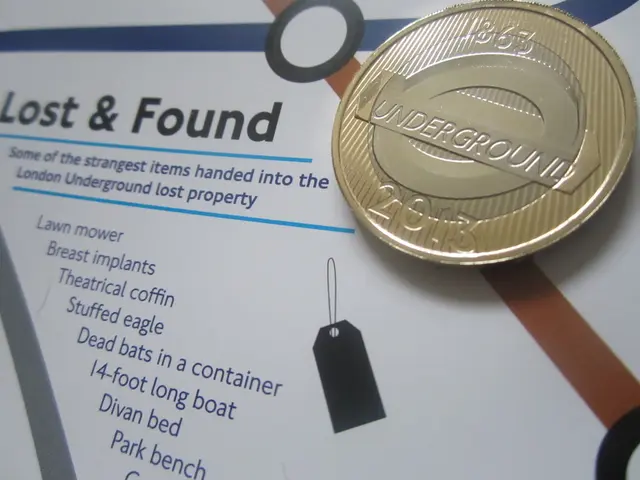Freenow's bankruptcy leads to its acquisition by Lyft
New Blood in European Mobility: Lyft's 175 Million Euro Grab of Freenow Shakes Things Up
In a bold move that signals Lyft's ambitious expansion plans, the company has snapped up Freenow for an impressive 175 million euros. This acquisition, which signifies Lyft's foray into the European market, could trigger significant changes in the German and European mobility scene. Let's dive into the nitty-gritty of this deal.
A Quick Glance at Freenow
Founded in 2009 as Mytaxi, Freenow has carved out a substantial presence in the European mobility sector. With operations in over 150 cities and services ranging from traditional taxis to E-scooters and car-sharing, Freenow boasts a sizeable user base. And now, with the mighty Lyft behind it, this established system is poised for a new chapter.
Lyft's diabolical plan
For Lyft, this strategic move nearly doubles its addressable market, from 161 billion to over 300 billion annual personal vehicle trips. This move opens up tremendous growth opportunities, especially in a market previously dominated by Uber and the Estonian provider Bolt. Interestingly, almost half of the European taxi market is still offline, providing additional potential for digital platforms like Lyft.
However, Lyft's entry into the European market isn't just about business – it has far-reaching implications for the German mobility scene. This acquisition marks the end of an era in which German automakers like BMW and Mercedes-Benz attempted to establish their own mobility platforms. The ultimate goal was to reimagine mobility as an all-encompassing product that exists independently of the car. Sadly, the German dream of transforming these manufacturers into mobility service providers seems to have hit a hard wall.
Freenow was the wild card contender, and it could have given tough competition. Money wasn't an issue, thanks to the stellar performance of car companies before the crisis. What was lacking was the courage to invest long-term and position the company at the top of Europe. The old saying held true: If it doesn't generate money within three years, it won't be supported further.
Freenow was more of a burden than an opportunity within the companies. With the sale of Freenow, they are retreating from this segment, prompting questions about the future role of German companies in digital mobility.
A bitter pill to swallow
It's clear that the companies need to diversify their portfolios. Sales growth will not be as astronomical as in the last decade, and the markets in China and India are moving at a slower pace. Additionally, autonomous vehicles are set to revolutionize micromobility on the last mile.
For users, integrating Freenow into the Lyft ecosystem could bring both opportunities and challenges. On one hand, new technologies and improved services could enhance the user experience. On the other hand, there's a risk that local peculiarities and needs could be lost in a global system. The strong focus of Freenow on taxi operations, which accounted for about 90% of bookings in 2024, could be supplemented or even replaced by a stronger focus on rental cars and other services.
Don't underestimate this acquisition. It highlights the growing influence of international tech companies on local markets and raises questions about the future shaping of urban mobility. Within the EU, only Bolt remains a significant competitor on the market. The rest will be divided between Uber and Lyft. Germany has retreated from the battle for urban mobility with the sale, without a fight.
Don Dahlmann, a journalist with over 25 years of experience, has been covering the automotive industry for over a decade. Each Monday, you can read his insightful column “Drehmoment,” focusing on providing a critical perspective on the mobility industry.
[1] Lyft's official statement on the Freenow acquisition
[2] Reuters: Lyft to acquire European ride-hailing service Freenow for 175 million euros
[3] The Wall Street Journal: Lyft’s Acquisition of Freenow: What It Means for Mobility
[4] Bloomberg: Lyft's Acquisition of Freenow: A Winning Move in the European Mobility Market?
[5] TechCrunch: Lyft's Acquisition of Freenow: A Game-Changer or Just Another Step in the European Mobility Ecosystem?
- With the integration of Freenow into its platform, Lyft's technological rate is expected to rise significantly in 2024, further strengthening its position in the European uber of micromobility.
- The acquisition of Freenow by Lyft signifies a transformation in the sports of mobility, as the focus shifts from traditional taxis to rental cars and other services.
- The sale of Freenow to Lyft marks the withdrawal of German automakers from the digital mobility market, raising questions about their future role in shaping the urban mobility landscape of 2024.
- As international tech companies like Uber and Lyft eye the European market, local sports and micromobility rates might face potential challenges or opportunities, depending on how effectively they adapt to the global ecosystem.




